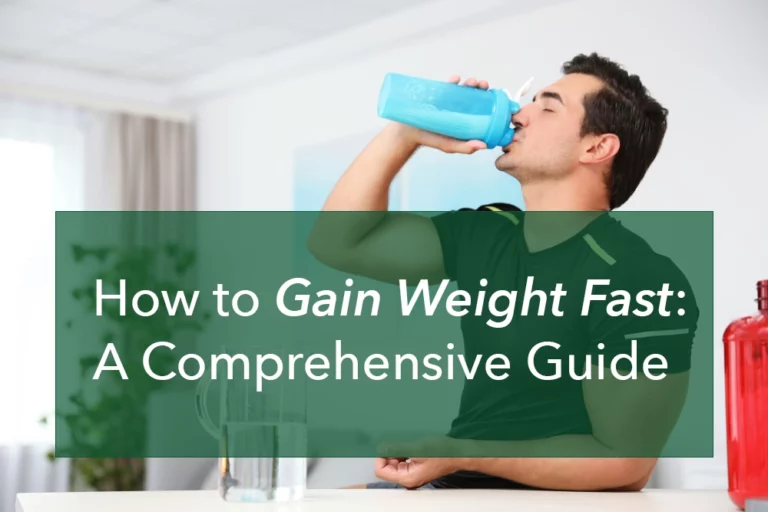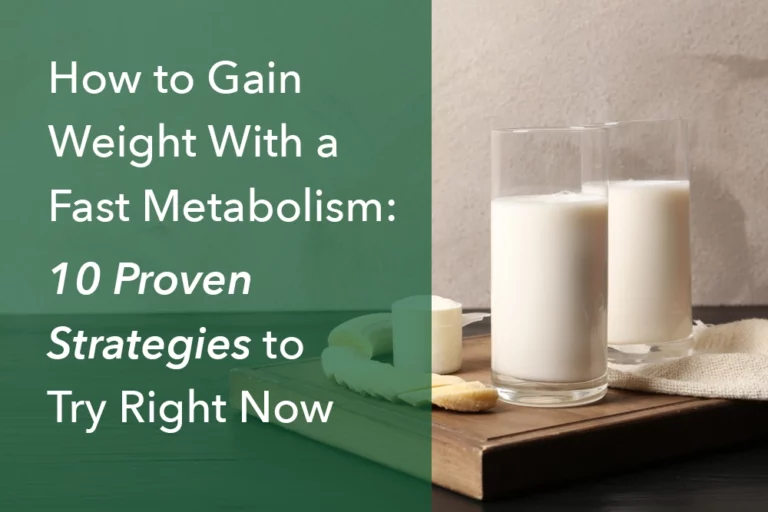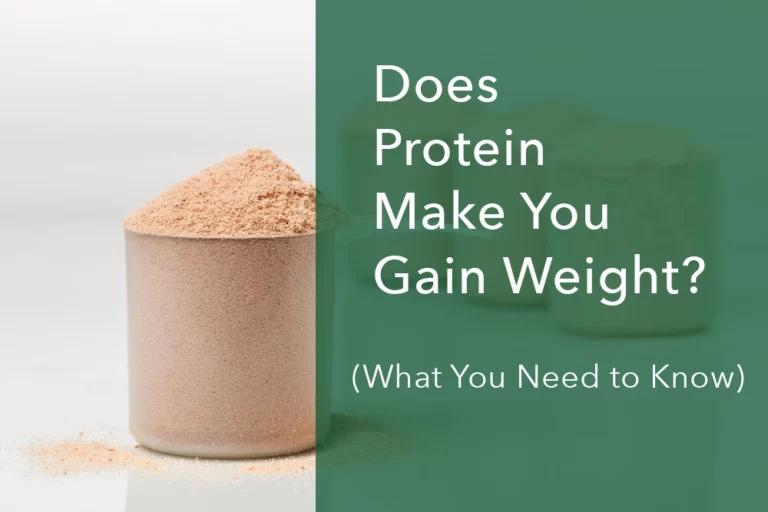17 Ways to Increase Your Appetite Naturally
We include links to products that we think our readers will find useful. If you buy through links on this page, we may earn a small commission. Learn about our process.
A poor appetite can stem from certain medical conditions or treatments, certain emotions, or as part of the natural aging process.
Not having an appetite can be frustrating, especially if you’re underweight and want to gain weight or muscle mass.
Fortunately, whether you have experienced a sudden loss of appetite or have been without an appetite for some time, there are several things you can do to increase your appetite.
Here are 17 ways to increase your appetite naturally and fast to help you gain weight or maintain a healthy weight.

1. Eat smaller, more frequent meals
Many people with a poor appetite experience early satiety, meaning they’re unable to eat a full meal or feel very full after eating a small amount of food.
If you experience early satiety, eating more frequent snacks and meals may allow you to get more calories in since they are spread out more.
Try eating three smaller high-calorie meals separated by high-calorie snacks throughout the day rather than 2–3 large meals.
Examples of high-calorie snacks include:
- high-calorie protein bars
- peanut butter and honey sandwich
- full-fat cottage cheese and almonds
- avocado-egg toast
- whole-fat Greek yogurt and granola
Several of these snacks are included in this 7-day weight gain meal plan.
2. Exercise
Although exercise tends to either decrease or have no effect on appetite, it’s possible that it may increase appetite in others due to individual differences (1).
Therefore, if you’re able, engaging in exercise may help you find your appetite.
The type, intensity, and duration of the exercise play a role in how someone’s appetite responds, so you can try playing around with these variables to see how you respond.
For example, you may find that resistance training or weight lifting increases your appetite while aerobic or cardio exercise like jogging or biking decreases your appetite (2).
3. Eat more highly processed foods
Highly processed foods are commonly vilified for their role in the development of chronic diseases like heart disease and diabetes.
However, you shouldn’t necessarily be afraid to eat more of these foods if you have a poor appetite and need to gain weight.
Highly processed foods tend to be rich in refined grains, sugar, fat, and sodium, making them very tasty and difficult to resist, which can increase calorie intake and weight gain over time (3).
You should still aim to eat mostly nutrient-dense whole foods like fruits, vegetables, lean proteins, and whole grains, but don’t be afraid to incorporate some foods like pizza, ice cream, french fries, and cheeseburgers in your diet as doing so may help stimulate your appetite.
4. Experiment with herbs and spices
Herbs and spices can increase appetite by enhancing the smell and flavor of foods and dishes (4).
Some can also increase appetite by aiding digestion, easing nausea, and improving the overall presentation of food (5).
Here is a list of various herbs and spices and the foods to pair them with:
- Basil: apricots, broccoli, blueberries, carrots, potatoes, rice
- Caraway: apples, poultry, pork, potatoes, tomatoes
- Cilantro: avocado, corn, yogurt, carrots, potatoes, soups, stews
- Cinnamon: apples, apricots, bananas, pears, yogurt, oatmeal
- Chives: egg dishes, fish, potatoes, salmon, zucchini
- Cumin: apples, beans, beef, potatoes, rice, squash
- Garlic: chicken, meats, vegetables
- Ginger: apples, chicken, fish, pears, mango
- Mint: asparagus, beans, peas, tomatoes, yogurt
- Nutmeg: carrots, chicken, lamb, potatoes, sweet potato
- Oregano: beans, corn, chicken, eggs, fish, pork, tomatoes
- Parsley: eggs, fish, lentils, rice
- Sage: beans, chicken, fatty meats, oily fish, potatoes, soups, stews, stuffing
- Turmeric: beans, fish, meats, poultry, rice, spinach
5. Try a mass gainer
Mass or weight gainers are powdered supplements that are loaded with calories, ranging anywhere from 560 to upwards of 2,000 calories per serving.
They are designed to be mixed with water or milk and consumed as a shake.
While mass gainers don’t necessarily increase your appetite, they can be a relatively efficient and cost-effective way to get more calories since they supply a significant number of calories in liquid form.
Drinking your calories tends to have much less of an effect on fullness than eating solid foods (6).
However, mass gainers shouldn’t replace meals but instead supplement your normal food intake.
There are several mass gainers to choose from but Dymatize Super Mass Gainer is one that can meet most people’s needs.
6. Make a high-calorie shake or smoothie
If you’re not a fan of weight gainer supplements, try making your own.
Making your own allows you to tailor the flavor and consistency to your liking and exclude ingredients to which you may intolerant or allergic.
Some of the best ingredients for making a high-calorie shake or smoothie include:
- fresh or frozen fruit
- Greek yogurt
- nut butter like peanut butter
- oats
- whole fat milk
- soy milk
- protein powder
- half and half
- juice
If you’re looking for some ideas, try one of these weight gain shake and smoothie recipes.
7. Take a vitamin supplement
Vitamin supplements — whether single nutrients or multivitamins — don’t directly affect appetite.
However, having a deficiency in certain vitamins and minerals may decrease your appetite, and restoring levels of these nutrients with supplementation may enhance your appetite.
Suboptimal levels or deficiencies in zinc, iron, and thiamin (vitamin B1) have been shown to decrease appetite among all age groups, including children and older adults (7, 8, 9).
Here are the people who are most at risk for developing a deficiency in these nutrients (10, 11, 12):
- Zinc: vegetarians, especially vegans, pregnant or lactating women, exclusively breastfed older infants, children with sickle cell disease, and people with celiac disease, and inflammatory bowel disease (IBD)
- Iron: infants, young children, teenage girls, pregnant women, premenopausal women, frequent blood donors, and people with celiac disease, IBD, and heart failure
- Thiamin: older adults, people with alcohol dependence, HIV or AIDS, and diabetes
If you believe you have a deficiency in one or more of these nutrients, taking a basic multivitamin supplement like this one from Nature Made may help boost your appetite.
You can also choose to supplement with the single nutrient.
Alternatively, weight gain syrups commonly contain zinc, iron, and thiamin.
8. Take fish oil
Fish oil is rich in heart-healthy omega-3 fatty acids, namely eicosapentaenoic acid (EPA) and docosahexaenoic acid (DHA).
These fatty acids may also serve as a natural appetite stimulant.
In one study, patients with cancer who supplemented with about 2 grams of EPA for 12 weeks experienced similar increases in appetite and weight gain compared with those taking megestrol acetate — a common prescription appetite stimulant (13).
Other studies have found similar results demonstrating that supplementing with 2–3 grams of fish oil improves appetite and decreases feelings of fullness after a meal (14, 15).
Fish oil may stimulate appetite by influencing certain hormones like serotonin and the expression of certain genes that regulate appetite and body weight.
If you wish to try fish oil, choose a reputable brand like Wiley’s Finest that undergoes voluntary third-party testing to ensure quality, purity, and potency.
9. Try a prescription appetite stimulant
Appetite stimulants — sometimes referred to as weight gain pills — are prescription drugs that increase appetite.
They work by influencing certain chemical messengers and activating receptors throughout the body that increase hunger (16).
Many appetite stimulants are prescribed off-label, meaning they are not intended to stimulate appetite but do so as a side effect.
The most commonly prescribed appetite stimulants include:
- megestrol acetate (Megace)
- oxandrolone (Oxandrin)
- dronabinol (Marinol)
- mirtazapine (Remeron)
- cyproheptadine (Periactin)
Because these appetite stimulants differ in their effectiveness and safety, there is no best appetite stimulant for weight gain.
Also, certain appetite stimulants aren’t strongly recommended for older adults due to their negative side effects (17).
If you have tried other ways to restore your appetite and believe an appetite stimulant would help, talk with your doctor to determine the best option for your situation.
10. Look for trends
Appetite can be influenced by various factors, including blood sugar levels, hormones, sleep, and mood and emotions like stress, loneliness, and boredom.
If you’re able to identify factors within your control that may be hindering your appetite, you can work to eliminate or improve them.
In contrast, if you identify a behavior that increases your appetite, you can do more of that behavior, assuming it doesn’t negatively affect your health.
Keeping a journal can help identify how changes in your behavior or mood may negatively or positively influence your appetite.
For example, you may notice that when you’re stressed, you have less of an appetite. Knowing this, you can implement stress-management techniques to help increase your appetite.
In contrast, you may find that regularly doing things that bring you joy — whatever that may be — increase your appetite. Knowing this, you can do more of those things that bring you joy.
11. Eat meals with others
Although social isolation and loneliness can increase food intake in response to mental stress and more time spent at home for some, it has also been linked with reduced appetite in others, especially older adults (18, 19).
As such, socializing with others at meal times can enhance emotional health and the pleasure of eating, helping to increase appetite and food intake.
Additionally, eating meals with others can improve the nutritional quality of one’s diet.
Socially isolated older adults who are cooking for themselves may lose the motivation to prepare a balanced meal and instead opt for something quick and easy like tea and toast.
Indeed, studies have shown that socially isolated older adults tend to consume fewer fruits and vegetables and have a less diverse diet (20).
Congregate dining facilities like senior centers, churches, and senior housing facilities are a great option for older adults who live alone and are not homebound.
12. Eat distracted
In general, you should avoid distractions like watching television during meal times and focus on being present at meals.
But if you’re dealing with a poor appetite and want to increase your calories, distractions can help.
Watching TV, talking on the phone, or browsing the internet while you eat diverts your attention away from your fullness cues, potentially allowing you to eat more than you would if you ate without distractions (21, 22).
13. Establish an eating routine
Humans are creatures of habit and routine.
Routines have the power to improve various aspects of our lives, including appetite.
If you don’t currently eat breakfast — either because you’re not hungry or you have never been a breakfast person — doing so can help program your body to be hungry at that time.
It might be uncomfortable at first, but after a week you’ll start to notice that you’re more hungry in the morning because your body is now expecting food at that time.
The same is true for other times of the day, but starting with breakfast is especially important to kickstart your day and get some calories right away.
Try starting with a yogurt, a bowl of oatmeal, or a protein smoothie.
14. Try essential oils
Essential oils are aromatic oils extracted from plants to capture their flavors, scents, and beneficial properties.
From lavender to rose to frankincense, there are many types of essential oils, each having specific uses and purported benefits.
Among their many types and uses, inhaling essential oils from cinnamon, clove, and fennel using a diffuser may enhance appetite by stimulating the olfactory receptors, which play a central role in smell and hunger (23).
A combination of cinnamon, clove, and fennel may produce a stronger appetite-stimulating effect than when used individually.
Additionally, inhaling the combination for longer periods (around an hour) may be better than shorter durations for increasing appetite.
However, while promising, there is limited evidence to support aromatherapy for increasing appetite in humans.
Find essential oils and diffusers on Amazon.
15. Liberalize strict diets
Doctors commonly prescribe diets — called therapeutic diets — to manage certain health conditions like diabetes, heart disease, or kidney disease.
While well-intentioned, these diets may do more harm than good, particularly in older adults.
Therapeutic diets tend to be overly strict and make food less palatable and enjoyable.
Consequently, this can decrease appetite and lead to poor food intake.
Liberalizing strict therapeutic diets can increase appetite by improving the flavor and variety of foods offered.
Doing so can also increase older adults’ quality of life and decrease the risk of malnutrition (24).
16. Talk with your doctor
If you take medications to manage conditions and diseases like heart disease, blood pressure, cholesterol, thyroid, and mood disorders like depression or anxiety, it may be worth speaking with your doctor.
This is because more than 250 commonly prescribed medications can negatively affect appetite (25).
Certain medications can interfere with appetite directly or indirectly by altering the sense of taste or smell or causing nausea.
If you are taking one or more medications that affect your appetite, your doctor may be able to prescribe an alternative.
17. Visit with a dietitian
The treatment for poor appetite should start with identifying the underlying cause — which may be caused by one or more reasons.
Registered dietitians are uniquely trained in identifying reasons for poor appetite and recommending appropriate treatments based on the cause or causes.
So if you’ve tried some of the ideas on this list with no success, you should visit a dietitian who can identify the root cause or causes and work with you to develop individualized recommendations.
Indeed, a review of five studies involving 472 patients undergoing cancer treatments found that nutrition counseling from a registered dietitian led to significant improvements in appetite, nutritional status, and body weight (26).
The bottom line
A poor appetite can occur as part of the natural aging process or as a side effect of a medical condition or treatment.
Having a poor appetite can be frustrating and interfere with your ability to maintain a healthy weight or gain weight.
However, there are several things you can try on this list to boost your appetite.






